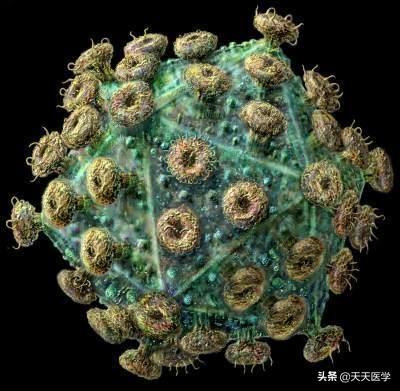What are the early symptoms of HIV in men?
What are the early symptoms of HIV in men?
Early symptoms of AIDS in men are mostly inconspicuous, usually manifesting as generalized fatigue, myalgia, low-grade fever, enlarged lymph nodes, night sweats and excessive sweating, skin rashes, headaches, and arthralgias that heal spontaneously in 1 to 2 weeks and are often overlooked.
These signs are symptoms of the acute phase of human immunodeficiency virus (HIV) infection; if not detected in time, the infection will enter the asymptomatic phase, which can last for 6 to 8 years or more without any symptoms; and then enter the final stage of HIV infection - AIDS phase, which will have fever, night sweats, diarrhea, weight loss, lymph nodes swelling that lasts more than 1 month, and some patients will also have neuropsychiatric symptoms, opportunistic infections and malignant tumors. Then, the final stage of HIV infection - the AIDS stage - will occur for more than one month, fever, night sweats, diarrhea, weight loss, lymph node enlargement, and some patients will also have neuropsychiatric symptoms, and opportunistic infections and malignant tumors.
When the patient has similar clinical manifestations as above, he/she should go to the hospital in time to rule out the possibility of HIV infection. If they are infected, they should be treated aggressively in order to improve their quality of life and prolong their survival time.
Reviewed by Dr. Huang Xiangan, Chief Physician, Department of Infectious Diseases, Dongfang Hospital, Beijing University of Chinese Medicine, China
Click here for details of the doctor's answer
AIDS is a common disease in the Department of Infectious Diseases, and the disease is prevalent in men who have sex with men, people who have had unclean sex, and people who have been using drugs for a long time. The incubation period of HIV is generally 8-10 years, and patients will experience acute, asymptomatic and AIDS, and in different stages of AIDS, patients can have different clinical symptoms. So what are the initial symptoms of AIDS in men.
1, non-infectious lesions: men with AIDS in the early stages, there will be non-infectious lesions, lesions of different shapes, similar to ichthyosis, psoriasis, but the condition is heavier, in addition to this, there will be atopic dermatitis, urticaria, acne-like lesions.
2, infected lesions: men with AIDS, the early stage of the disease will also appear infected lesions, such as herpes zoster, herpes zoster lesions are usually larger, there will be blisters, blisters, blisters, blood blisters, and there is a sense of intense itching, easy to trigger bacterial infection. In the early stages of the disease, there will also be herpes simplex, herpes simplex usually recurring frequently, lesions are more limited, patients usually show persistent oral, genital and perianal herpes, the situation if not controlled in time, ulcers will be formed.
3, fungal infection: men suffering from AIDS at the beginning, will also trigger fungal infection, the most common manifestation is thrush, in addition to this, the patient will also appear heavier superficial fungal infections, such as ringworm, tinea cruris, tinea pedis.
After HIV enters the body and undergoes a latent period of several years, a series of symptoms of opportunistic infections with pathogenic microorganisms will appear due to immunodeficiency. Some herpes zoster and oral fungal infections can occur at the earliest, and the glans and coronal sulcus can also be infected by fungi, with increased urinary scales and foul odors, and in severe cases, glans ulcers and prickly heat. Unexplained fever, diarrhea, and progressive weight loss may also occur. Recurrent lung infections, gastrointestinal symptoms, and skin rashes occur.
Hello, HIV is a kind of immunodeficiency virus, mainly attacking the human immune system, HIV due to the incubation period is relatively long, generally 0.5 to 20 years, an average of 7 years, that is to say, from the infection of HIV to the beginning of symptoms, an average of 7 years. The length of the incubation period depends only on the amount of HIV carriers infecting the human body, gender (in general, males show symptoms earlier than females), and the route of infection (direct transmission through blood is earlier than the appearance of unclean sex), and the HIV virus is mainly found in the blood, semen, breast milk, vaginal secretions, etc. of AIDS patients.
The majority of men infected with HIV have no symptoms during the incubation period, but after the incubation period the following six symptoms are recognized.
First:Persistent unexplained low-grade fever, night sweats, unexplained lymph node enlargement, and recent weight loss.
Second: neurological symptoms: dizziness, headache, unresponsiveness, mental abnormality, and seizures.
Third: digestive symptoms: mainly manifested as anorexia, loss of appetite, unexplained nausea.
Fourth:Skin manifestations, skin and mucosal damage diffuse papules, herpes zoster, inflammation and ulceration of the mucous membranes of the mouth and throat.
Fifth:A variety of malignant tumors can occur, primarily Kaposi's sarcoma.

It's usually pretty close to what the internet says, so if you really suspect you have AIDS, go to your city's CDC and get a blood test to see if you have AIDS, it's usually $80 a test, and it includes screenings for syphilis, AIDS, Hepatitis B, Hepatitis C, and many other common STDs. About five or six years ago it was $80 a visit, I don't know how much it is now, but it's probably not much more than that, and it's probably around that amount in your area. The CDC in the city is able to do HIV testing, and the regular slightly larger hospitals are also able to do HIV testing. My dad had a full blood workup at the hospital before he had his colon tumor removed, and the list of costs clearly said that the HIV test cost ninety dollars. So even if you go to your local public hospital for HIV screening, it still won't cost you much. Instead of being scared all day long, you should have the test done earlier, and if you don't have HIV, then you can consider it as spending money to buy a peace of mind. If you do, then go to the city to get free anti-AIDS drugs, which are provided free of charge in every city. Stick to them, even though taking them for a long time will certainly harm your bodily functions, but this is already a stopgap measure, are you willing to give up your chances of long-term survival in order to avoid short-term pain? So, stick to your anti-AIDS medications, and as long as you have medications to take that counteract the HIV virus, the full-blown outbreak of AIDS won't come as quickly, and may even allow you to end up living as long as someone who doesn't have AIDS. Of course, AIDS is no longer so scary, and the anti-AIDS drugs now available basically enable AIDS patients to live the same life span as normal people. Some experts have predicted that AIDS could be cured by around 2025. Even if this prediction does not come true, it can only be that there is a mistake in this period of realization, because from ancient times to the present, more and more intractable diseases have been cured in the end, this is an unchanging law, and AIDS is no exception. So even if you end up getting tested for AIDS, don't be afraid, it is highly likely that AIDS will be cured after four or five or six or seven or eight years. At that time, you will get another chance to live a new life.
I'm Dr. Shannon Wang, a dermatologist, and I'm answering this question from my professional perspective:
What are the early symptoms of HIV in men?
The three main symptoms of AIDS in the early stages of adult males:
I. Symptoms of the acute phase of AIDS in adult males
There are also some people in the early stage of infection can appear male AIDS early symptoms, the incidence of about 50%, mainly manifested as fever, dizziness, weakness, sore throat, joint pain, skin rashes, generalized superficial lymph node swelling and other symptoms similar to the "flu", some people can also occur diarrhea. This symptom usually lasts for 1-2 weeks and then disappears, after which the male HIV-infected patient will enter an asymptomatic incubation period.

II. Symptoms of HIV latency in adult men
Most people are asymptomatic during the incubation period, but a small percentage of adult men experience swollen lymph nodes and neurologic symptoms during the HIV incubation period, mainly, dizziness, depression, memory loss, mobility and speech disorders, and acute aseptic meningitis manifesting as headache, neurologic symptoms, and meningeal irritation. Enlarged lymph nodes are also a hallmark symptom of the incubation period and are found in a small number of adult men throughout the cycle of HIV infection.

III. Symptoms of end-stage opportunistic HIV infection in adult men
There may be obvious fever, fatigue, night sweats, uncontrollable weight loss of 10%, persistent diarrhea, persistent fever (¡°38¡æ) for more than 3 months and other clinical manifestations; and severe immunodeficiency clinical manifestations, such as slow cellular immune response, opportunistic infections and malignant tumors, which may involve various systems and organs of the body, and often have multiple pathogens causing coexisting infections and tumors.

All male friends who have had unsafe sex and unsafe injection drug use and other high-risk behaviors, especially men who have sex with men, must be timely testing for HIV, frequent unsafe sex should be tested regularly, once every three months, not to exceed six months at the longest. People who occasionally have high-risk sex with prostitutes are advised to test for HIV antibodies in a timely manner after the window period of 2-6 weeks has passed, and can choose to go to the CDC's free counseling and testing sites or directly purchase HIV test strips to do home self-testing.
AIDS, also known as HIV-induced acquired immunodeficiency syndrome, occurs with the same symptoms in both men and women who are infected by HIV, meaning that there are no differences between men and women.

Since there is no HIV vaccine and other effective preventive measures, all people who are infected by HIV will experience the appropriate symptoms, and the early symptoms are manifested in two main ways:
1. Symptoms of the incubation period:The incubation period of HIV-infected people is 7-10 years on average, and they are carriers of HIV as well as the source of infection. These people have no obvious uncomfortable symptoms, and are outwardly the same as normal people before the onset of the disease, and they can live and work for many years without any symptoms, but they are able to transmit the HIV virus to other people through sexual intercourse, blood contamination, sharing of syringes for drug abuse, pregnancy, childbirth, and breastfeeding, which is the reason why The reason why AIDS makes everyone defenseless.
2. Symptoms of early onset:When HIV-infected patients have a large number of viral replication in the body, so that the infected person's immune system has been seriously damaged, can not maintain the minimum resistance to disease, then become AIDS patients, often appear unexplained prolonged low-grade fever, weight loss, night sweats, chronic diarrhea, coughing, skin rashes, herpes zoster, and other symptoms and illnesses, which is a high-risk group of people at risk for AIDS and carriers of the virus should be vigilant about the signals of the onset of the disease.

Since there is no effective treatment for AIDS, the only way to prevent AIDS is to avoid high-risk behaviors that could lead to infection. It is very important for us to learn and master the knowledge of safe sex in our daily life, to refuse drugs, and to be clean and honest in order to prevent the occurrence of AIDS.

Follow Daily Medicine for more health knowledge. Inadequate, please correct and add.
Thanks for reading!
This question and answer are from the site users, does not represent the position of the site, such as infringement, please contact the administrator to delete.